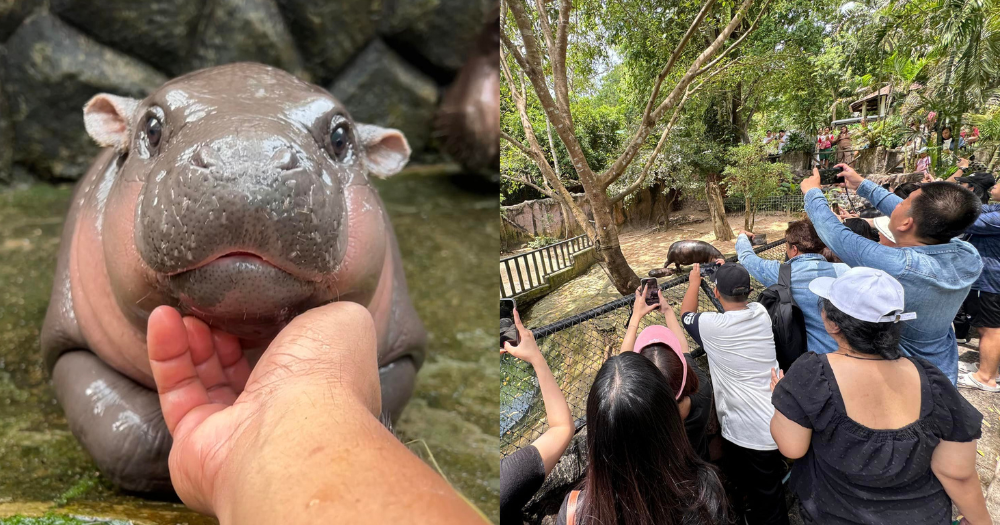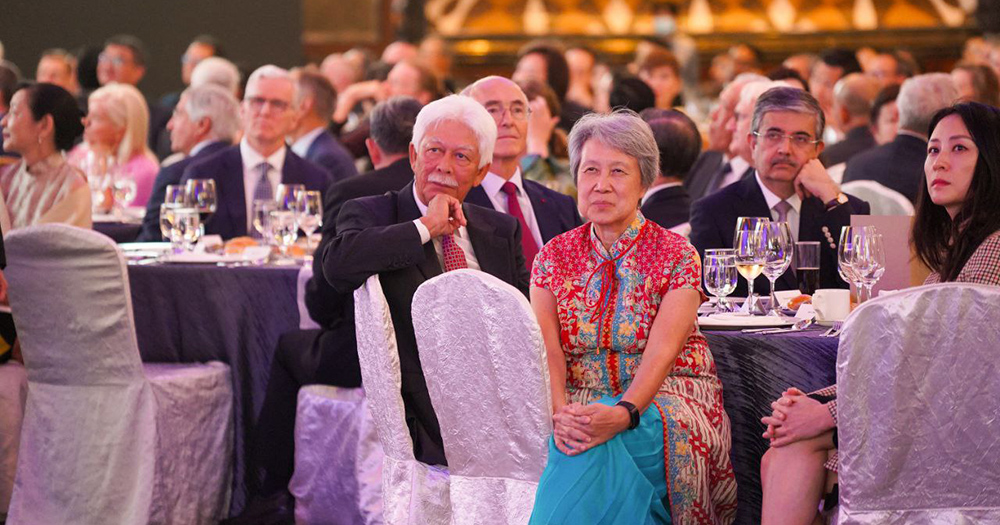Baby hippo 'Moo Deng' brings in S$470,000 for zoo in less than 3 weeks
On her way to be the favourite child.

Moo Deng has done more than make waves across the internet.
She has been making bank for the zoo as well.
The two-month-old baby pygmy hippopotamus brought the Khao Kheow Open Zoo ticket sales worth 12.97 million baht (S$470,000) in the first 19 days of September.
A total of 81,786 people visited the zoo during this period, likely attracted by the juvenile hippo's countenance.
Cash cow hippo
Moo Deng resides in a zoo in the Chon Buri province in Thailand.
The zoo's director, Narongwit Chodchoy said the public’s fascination with the adorable hippo has led to a 50 per cent increase in visitor numbers.
Khao Kheow Open Zoo expects this hype to continue throughout the year, predicting to surpass one million visitors and achieve over 200 million baht (S$7.8 million) in total revenue for the fiscal year, as reported by Bangkok Post.
More foreign visitors are expected, especially from other Asian countries, such as Japan, China, and South Korea.
24-hour live stream of Moo Deng
The zoo recently launched a 24-hour live stream of the different animals they keep.
Bangkok Post reported more visitors tuning in between 7:45am and 9am for Moo Deng, during the afternoon feeding of her mother Jona, and when she is more active as the staff cleans her pen.
Those who wish to see Moo Deng in person will have to queue and are limited to watching the hippo for five minutes during peak periods.
They will have to requeue if they wish to see more of the little celebrity.
Moo Deng went viral in August 2024 after photos of her playful nature were shown on social media.
On Sep. 8, Khao Kheow Open Zoo announced merchandise in the form of a clothing collection inspired by Moo Deng.
More about pygmy hippos
Pygmy hippos are classified as an endangered species, according to Mandai Wildlife Reserve.
They can live up to 43 years under human care and are endemic to the upper Guinea forest of West Africa.
Their greyish black skin helps them stay cool in humid climates, and they dehydrate easily in the sun, causing them to spend most of their time underwater.
They have no sweat glands but their skin secretes a pink fluid to protect their skin from the sun, giving them a shiny, wet appearance.
Related article
Top image via ขาหมู แอนด์เดอะแก๊ง and Khao Kheow Open Zoo/Facebook
MORE STORIES




















